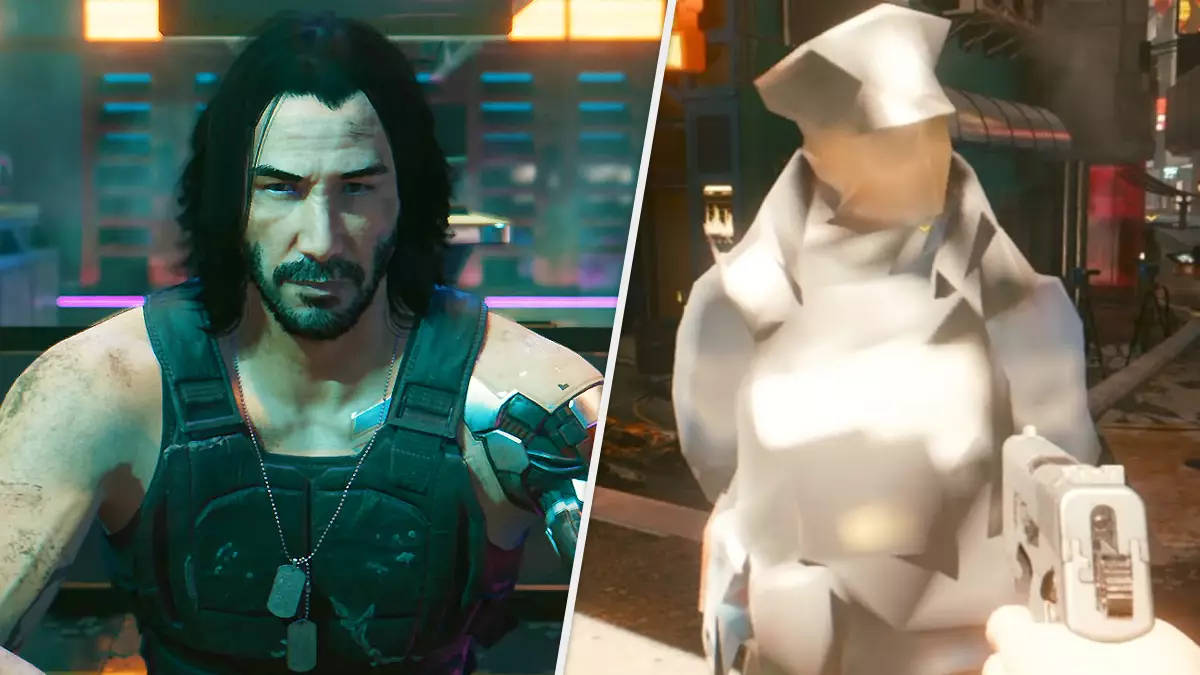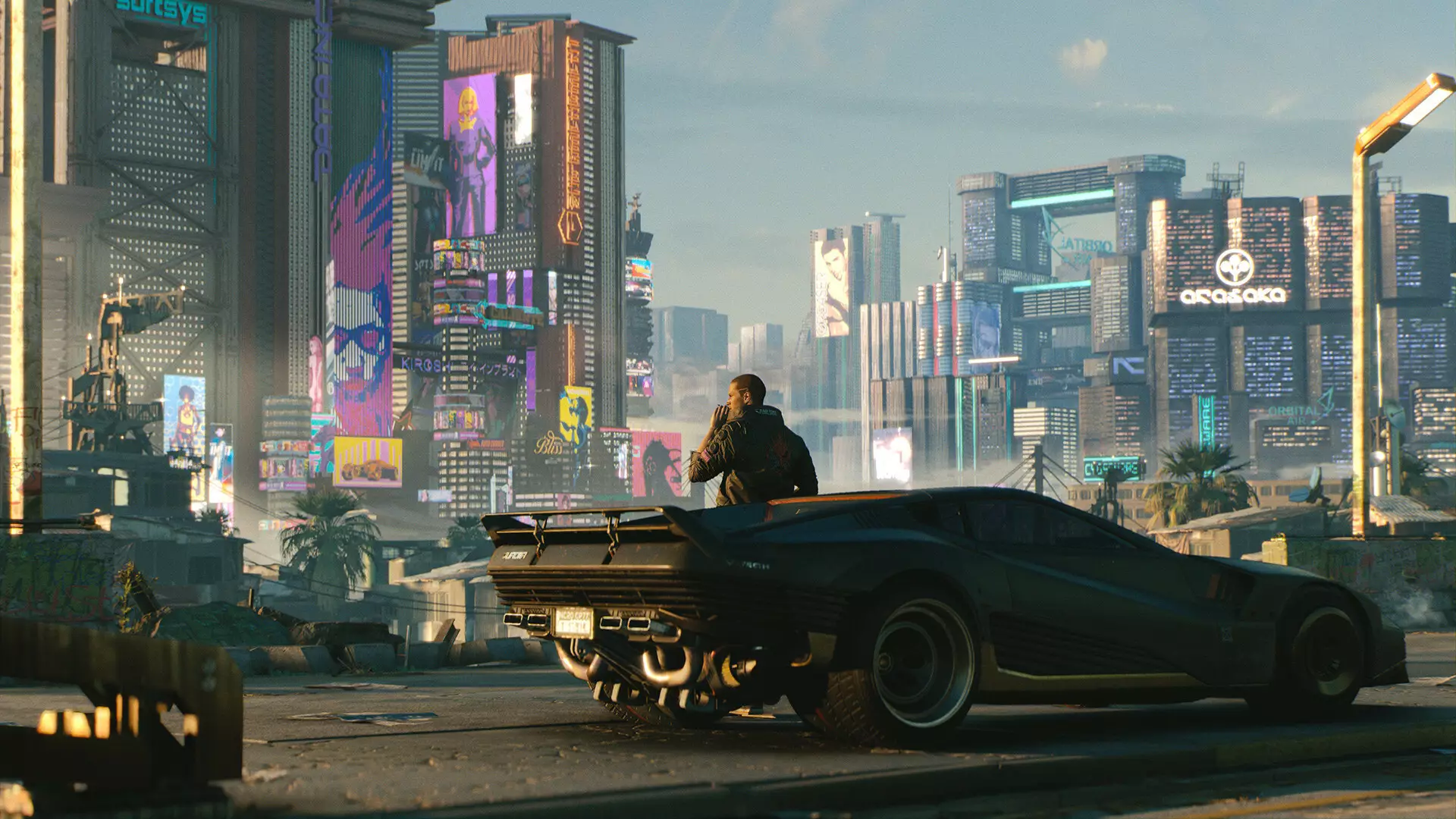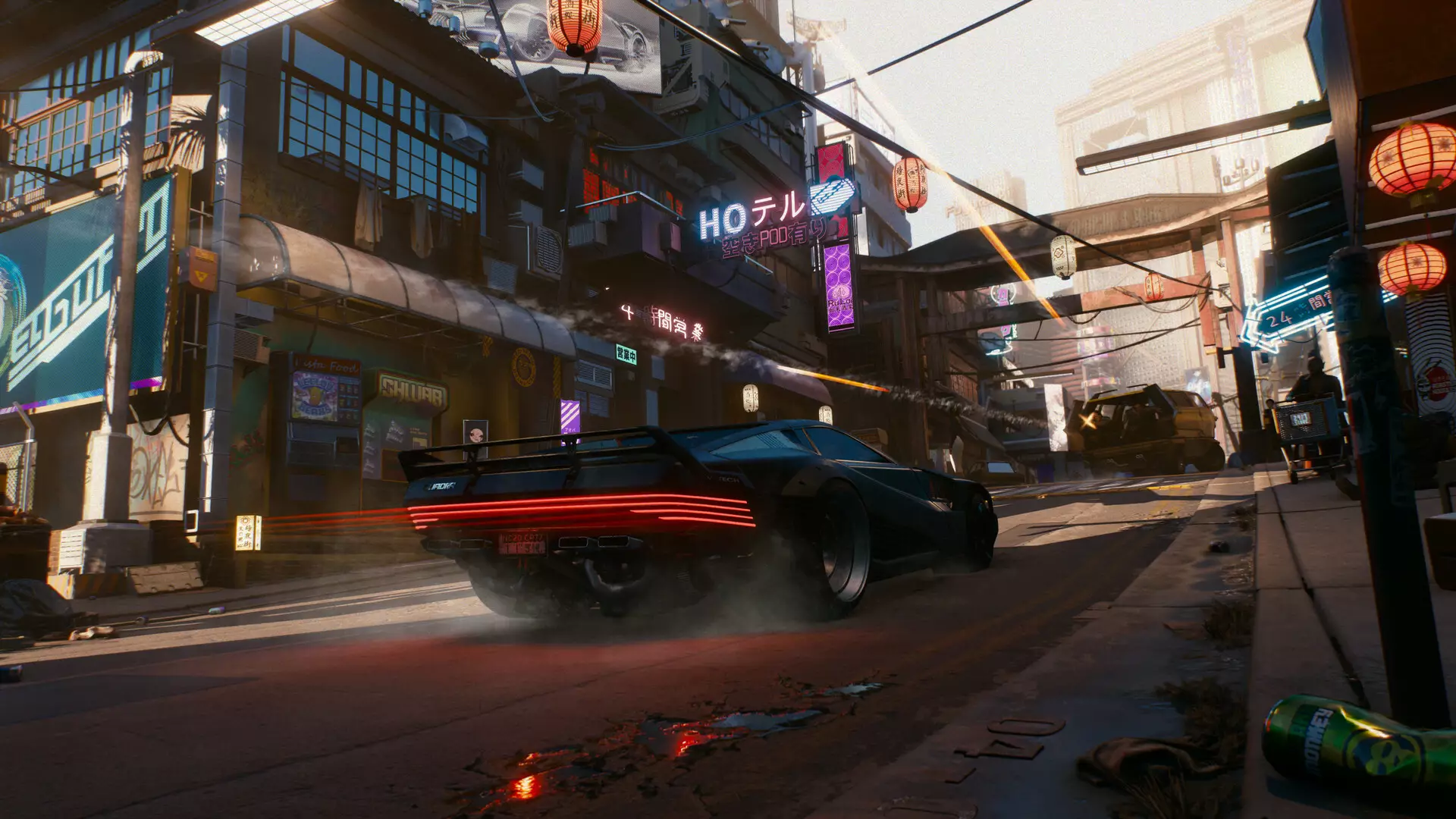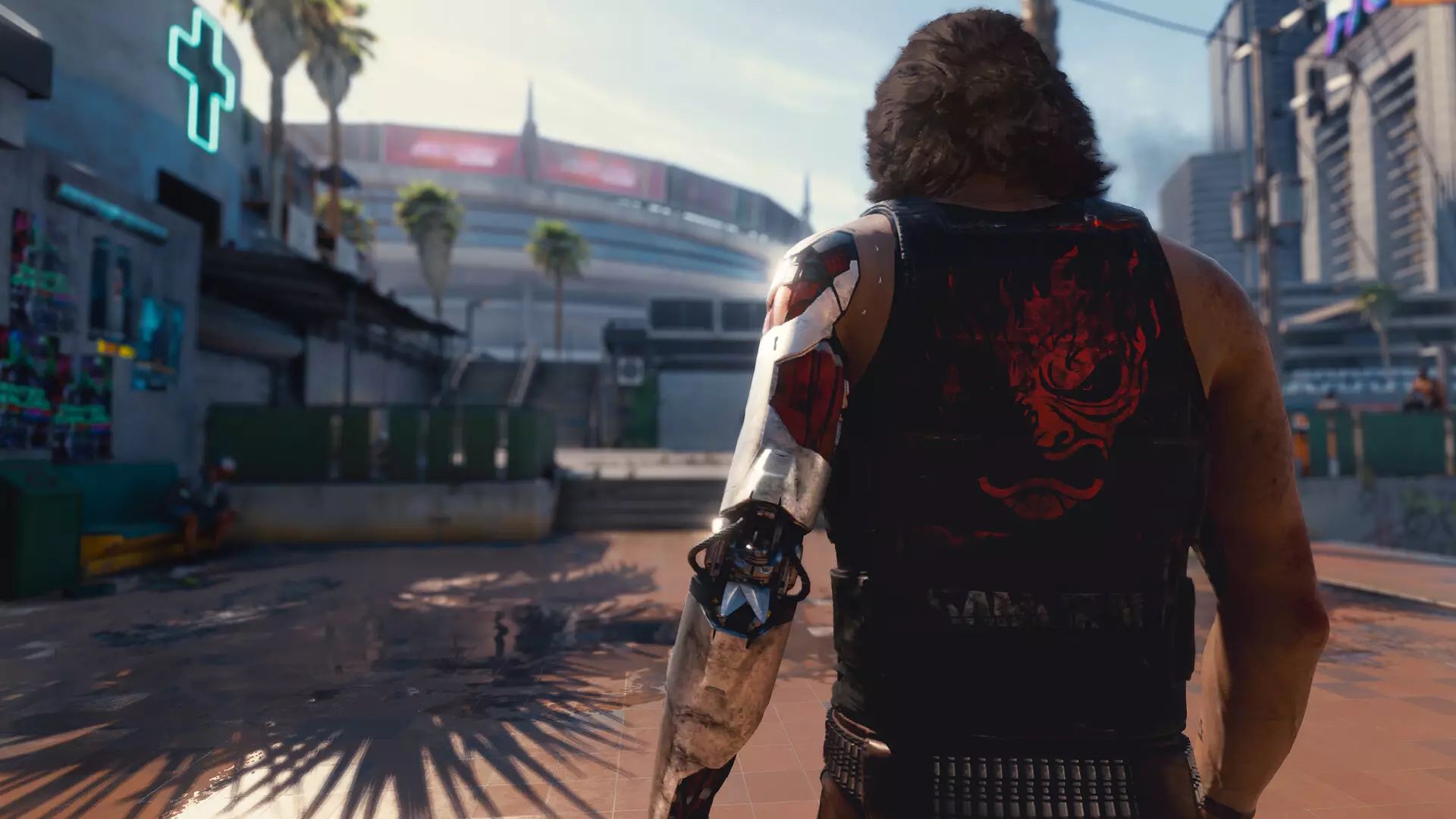
By now, we've all seen the problems that Cyberpunk 2077 has on console (if not, here's our review). It seems that if you're playing the game on PlayStation 5 or Xbox Series X/S, you can expect a few crashes here and there, and maybe a few bugs - some frustrating, others amusing. But on PlayStation 4 and Xbox One, the experience can be incredibly testing.
I've been playing on an original PS4, and it's not been fun. I sure wasn't expecting it to look like, or run like, what I've seen first-hand in expo previews and in the PC-only reviews that ran last week. But I was at least hoping a little fuzziness, some poor contrast and lower-detail assets would keep the game running smoothly. Sadly, that's not been the case. And its makers, CD Projekt Red, have acknowledged this, offering refunds to players who picked up the game on PS4 or XBO while confirming that two significant patches will be made to the past-gen versions of the game in early 2021.
But why is Cyberpunk 2077 such a dog's dinner on PlayStation 4 and Xbox One? The game's been in development, or in the planning stages of it, since 2012 - before these consoles were even released. So, surely, its developers could have done better than this? Well, we reached out to some experts - three game developers, two of whom have worked on first-party PlayStation 4 titles - to ask about what's going on under the hood of this AAA hit that's delivering more misses than not, right now. (And because we know how this business works, and how some fans of Cyberpunk 2077 have acted in recent weeks, we're keeping our experts anonymous.)

When people experience a blue screen on PS4, as they have been in Cyberpunk 2077 - I've had several - why is that?
Advert
Blue screens are application crashes, which can happen for many reasons - any error on the game side could crash an application. But there are two categories that are most common. The first is "null references", meaning the game is trying to access, target or find certain data that it cannot find, like an NPC that you need to talk to but hasn't been loaded in yet.
The other category, which is very likely on the last-gen consoles, the PlayStation 4 and Xbox One, is running out of memory. While running the game, textures and models and data are constantly streamed in, and if too much is being streamed in while unloading is not happening often enough, or at the right moment, the memory will overflow and the whole application will shut down. It takes a lot of work to manage the memory correctly, especially when you've made a next-gen game with lots of textures and data, and you're trying to fit it on a device with last-gen memory.
The complexity of modern software development means it's nearly impossible to test all possible combinations, so it's not unusual for these bugs to pass through QA undetected.

I've heard that devs often have to make decisions on what to fix and what not to, because to change one thing could negatively impact several other systems, other parts of the code. How true is that? And in a game like Cyberpunk 2077 - with hundreds of devs, presumably working remotely during COVID - how likely is it that teams have simply had to run the risk of certain things not working, in order that most things do?
Advert
That's very true. Because of the way game code is structured in most cases, elements are interconnected and relying on each other. This means that a small piece of code breaking on one end can take down a much bigger system on the other end, like a domino effect. As a development team, this means you always have to assess the risk of fixing something small against what it could possibly break on a much bigger scale.
For this reason, development teams often choose to leave smaller issues as they are, in favour of having a more stable build overall, even though that sometimes feels counter-intuitive. Especially when working remotely and having weaker communication among team members, it's very often the safer option to leave things be just before a deadline to ensure that at least the bigger picture is still fairly stable. A floating NPC looks bad and breaks immersion, but at least you can keep playing, is what a team's prioritisation process can sound like.

So long as they don't break missions, or crash the game, sometimes bugs can be sorta funny. We've seen cars acting weirdly, and characters locked in T-poses, in Cyberpunk 2077. And we've laughed at them. But from a developer perspective, are you able to see the funny side when your work is being... basically made fun of?
Advert
Some devs may be able to see the funny side, but for most it will likely be a painful watch. For a number of years they will have sunk a great deal of time and effort into the game and its vision, so seeing people hitting these issues, even if the appearance is comical, will not make for pleasant viewing, and in most cases be quite demoralising.
You'll no doubt have seen posts yourself saying, oh, the devs on a certain game are lazy. Or: they rushed this out, and so on. Now, I've never met a lazy dev in my life! But I do know that games are rarely finished, there just comes a point where other factors mean they have to come out. So, just how much better would more transparency on the dev process be for players to really understand why some games, like Cyberpunk 2077, launch with... let's say, wrinkles?
Gaining a better understanding of the process cannot do any harm, and might help in some quarters. But it's unlikely that it would have widespread impact on the perception of game development - although, it would be great if that were the case. There's rarely that much desire to know how the meal was made, more how it tastes - and this is not a problem unique to games.
Modern games can be expensive and, in difficult economic times particularly, they can be a significant outlay for someone, so it's easy to understand some disappointment if there is a disconnect between their expectations and the experience they have. How realistic those expectations might be, and where they have come from, is another thing entirely.

CDPR have now said there are two large patches coming to the PS4 and XBO versions of the game. Players will no doubt think: well, why wasn't this stuff there at launch? But are there times when devs have to see how the game is playing 'in the wild', on the home consoles, across a wide audience, before it can say: OK, this is what we need to do?
Advert
Even with smaller games, games that still have extensive QA cycles, it's very hard to catch every single bug for a launch. Players 'in the wild', especially when a game has a large audience, will play the game in any number of unexpected ways - which a comparatively smaller QA team will struggle to replicate pre-launch.
So a game going live can bring a sudden wave of previously unidentified issues and edge cases that need to be diagnosed, risk assessed and then fixed. Outside of bugs, the same can be true of qualitative issues like balancing the gameplay and play experience; tweaking weapon stats and mission difficulty if players are struggling or prove overpowered in sections of the game, for example.
And just finally: will the well-documented crunch conditions at CDPR have potentially played a part in why some aspects of this game are... rough around the edges? Not to get into the weeds over whether or not crunch is ever a 'necessary' thing - but surely if you're tired, feeling more pressure, that can impact your work and things can very naturally, very forgivably, get missed?
With any complicated work, being tired, stressed or working to short timeframes will inevitably have an impact on an individual's efficiency, the quality of their performance and work output. There will of course be team structures in place to lead and manage teams of individual developers; however, they may also be under similar strains, so it's easy to see how things can snowball and issues arise that might not have otherwise.
Advert
These issues are a symptom of a project's schedule not 'adding up', so are technically avoidable with proper planning and resourcing. But with larger projects like Cyberpunk 2077, with great expectation and external market forces around them, that is a much more significant challenge than with simpler projects.
Featured Image Credit: CD Projekt RedTopics: Cyberpunk 2077, Interview